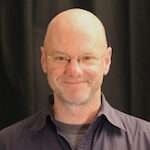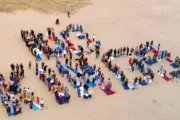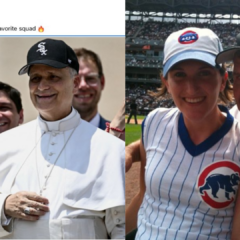Does America have a special God-given role in the world?
In meetings with both evangelical and religiously unaffiliated young adults in Los Angeles, I have seen a shift in the understanding of American exceptionalism that is reflected in national politics.
Among evangelicals, the driver of this change is tension between two distinct visions of the Kingdom of God, which I wrote about for Religion & Politics earlier this year. Older, whiter evangelical Christians in suburbs and small cities tend to believe that American exceptionalism is tied to the country’s instrumental role in establishing God’s Kingdom in Israel after a period of apocalyptic upheaval. Younger, more ethnically diverse evangelicals in urban areas see the Kingdom of God in the here-and-now, with Christian and non-Christian communities cooperating to ease suffering and promote social justice, thereby making America more exceptional.
These competing visions of biblical prophecy aren’t merely academic. Each perspective on exceptionalism and the Kingdom of God was represented in key speeches during the recent presidential transition, and each influences policy that shapes the cultural landscape both here and abroad.
For example, in his farewell address in Chicago, former President Barack Obama tied the notion that the U.S. occupies a special place in human history to the assertion that our experiment in democracy is an ongoing process.
“Not that our nation has been flawless from the start,” Obama said, “but that we have shown the capacity to change, and make life better for those who follow.”
President Donald Trump also sees the United States as a nation set apart from other nations, though for him this exceptional status reflects an unchanging perfection in our national character rather than the capacity for growth and change.
In his inaugural address, Trump said, “We do not seek to impose our way of life on anyone but rather to let it shine as an example for everyone to follow.” To that Reaganesque formulation of American exceptionalism Trump added the kind of nationalist and isolationist language that served him well on the campaign trail.
“At the bedrock of our politics will be a total allegiance to the United States of America,” he said. “From this day forward, it’s going to be only America first.”
John D. Wilsey, a historian of American Christianity, describes these two distinct angles on the place of the U.S. in world affairs as “open” and “closed” exceptionalism.
Obama’s open perspective on exceptionalism echoes several key aspects of the changing “kingdom values” narrative. In my article on Religion & Politics, I quoted a few young Christians who embrace this new narrative:
“My dad is huge on End Times prophetic stuff,” said Ephraim Gatdula, a 27-year-old member of The Branch, an evangelical church in a working-class neighborhood on the west side of Long Beach. “I’m a believer that God didn’t tell us specifically what’s going to happen and when he’s going to do it, so why bother looking through the scripture for it?” Gatdula said he wants to focus instead on addressing the needs of homeless people and the “working poor” in the neighborhood that the Branch calls home. “It’s just about service,” he said. “It’s about being God’s hands and feet in the community.”
Gatdula’s pastor and the founder of the Branch is 39-year-old Derrick Engoy. He said that the commitment to service that he promotes in his congregation also includes cultivating good relationships with religious “others” whom earlier generations of evangelicals tended to regard with suspicion or even hostility. “In many ways, even in my early upbringing in Christianity, it was very exclusive,” Engoy said. “It was, ‘Here’s this club that if you’re not a part of you’re going to hell.’” But growing up in a diverse community in Long Beach made him question these beliefs.
…[Engoy] and his flock of about 100 members have developed projects like a food pantry, feeding programs for the local homeless population, and monthly laundry service for the working poor, leveraging networks beyond their association with evangelical fellow-travelers. “We’re looking for ways to partner with what’s already going on,” Engoy said. “Because the reality is we’re not bringing God to people; God’s already there.”
On the other hand, Donald Trump’s “closed” exceptionalism reflects the exclusive claims to divine truth and the suspicion of “others” (Muslims, immigrants, LGBT people and secular elites) that characterize the worldview of many members of his white evangelical base. According to a 2015 survey by the Public Religion Research Institute (PRRI), more than eight in 10 white Protestants believe that God has granted the U.S. a special role in human history. As my colleague Richard Flory notes in his recent article for The Conversation, the white evangelical movement that has been galvanized by the election of Donald Trump sees Trump’s presidency as a chance to realize the Kingdom of God as it’s envisioned in the conservative mythology of “closed” exceptionalism.
The same PRRI survey determined that fewer than half of religiously disaffiliated adults—currently the fastest-growing segment of the U.S. religious landscape—believe that America is somehow a nation set apart from other nations. Coupled with a Pew survey that revealed the striking degree to which religious “nones” are underrepresented in the U.S. Congress, the PRRI data might augur dramatic political changes on the horizon.
Or not. The electoral infrastructure of our two-party political system favors the broad status quo, and white Christian conservatives are a more reliable voting bloc than either urban evangelicals or religious “nones.” Closed exceptionalism Trumps open exceptionalism, at least for now.
Nick Street was a senior writer with the USC Center for Religion and Civic Culture.







